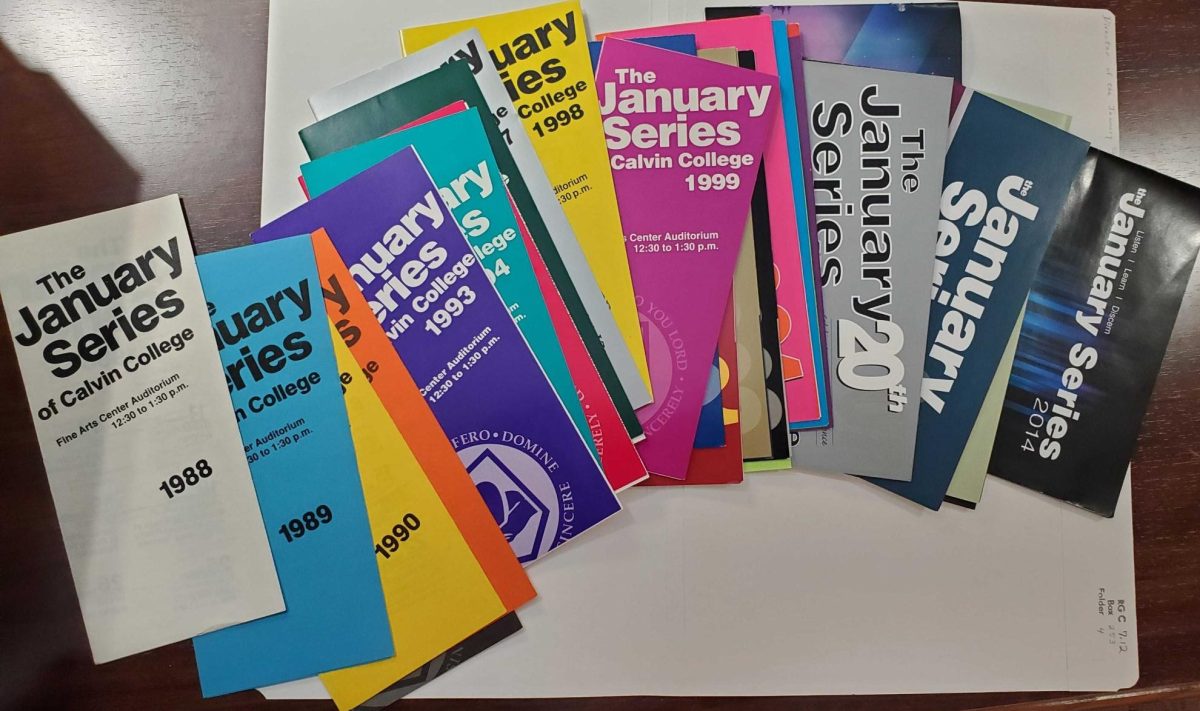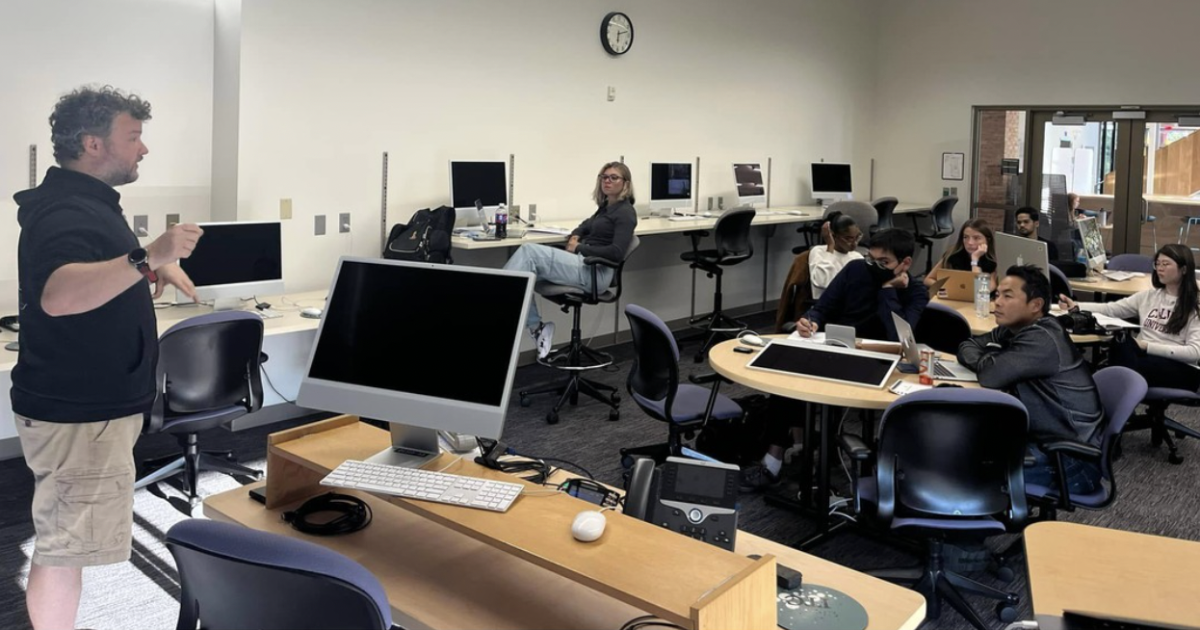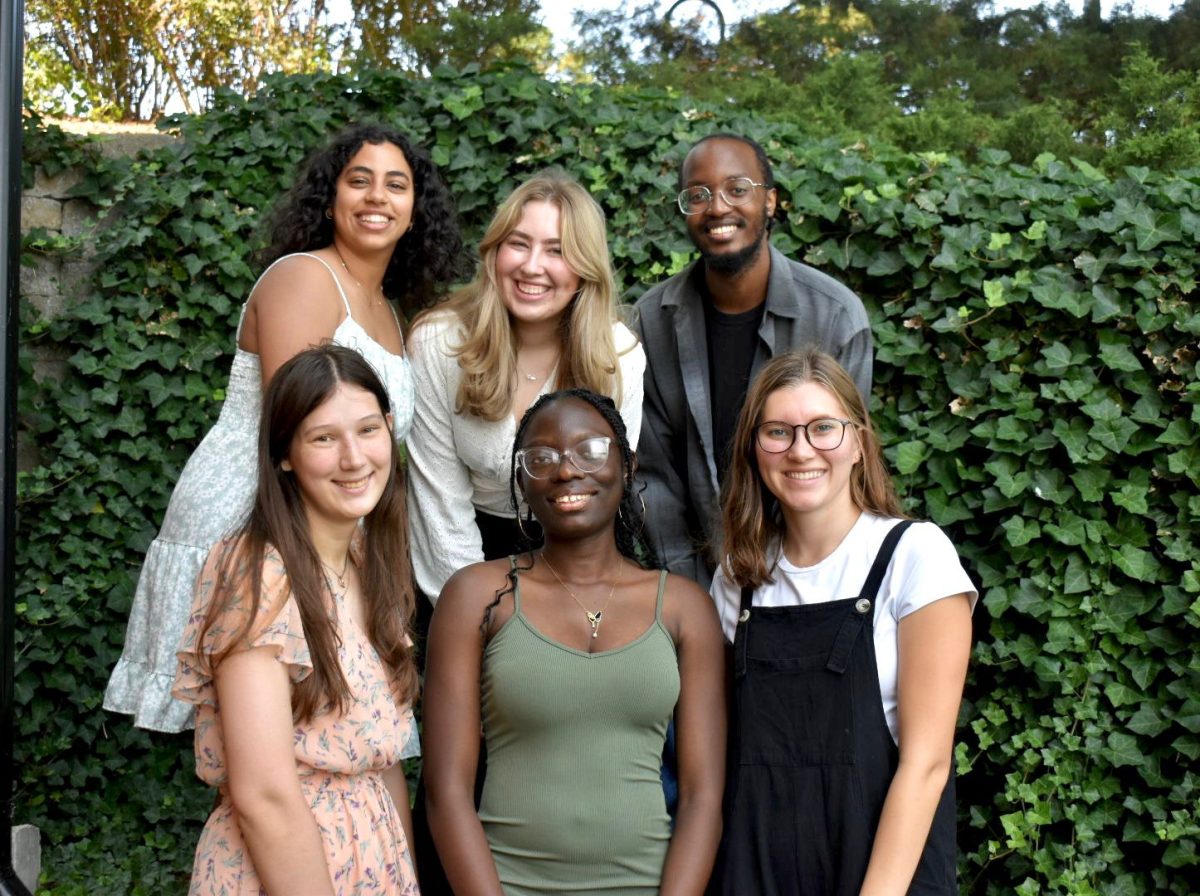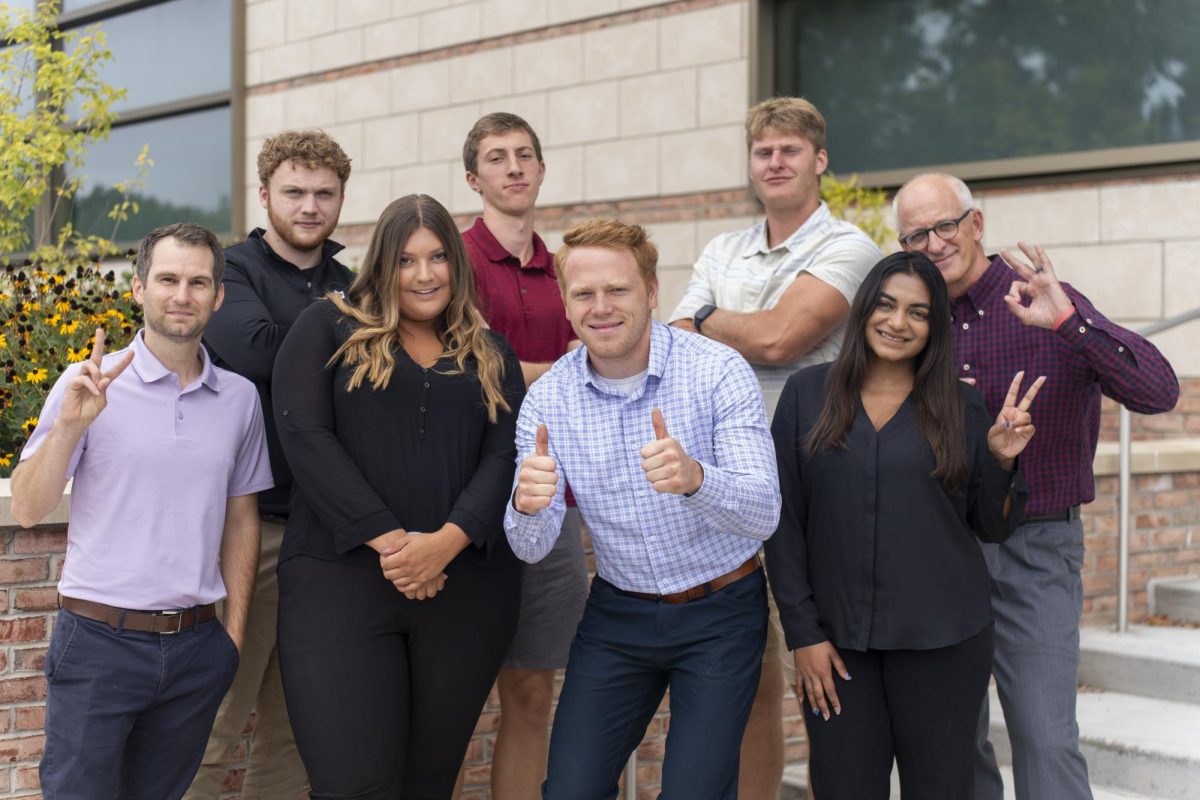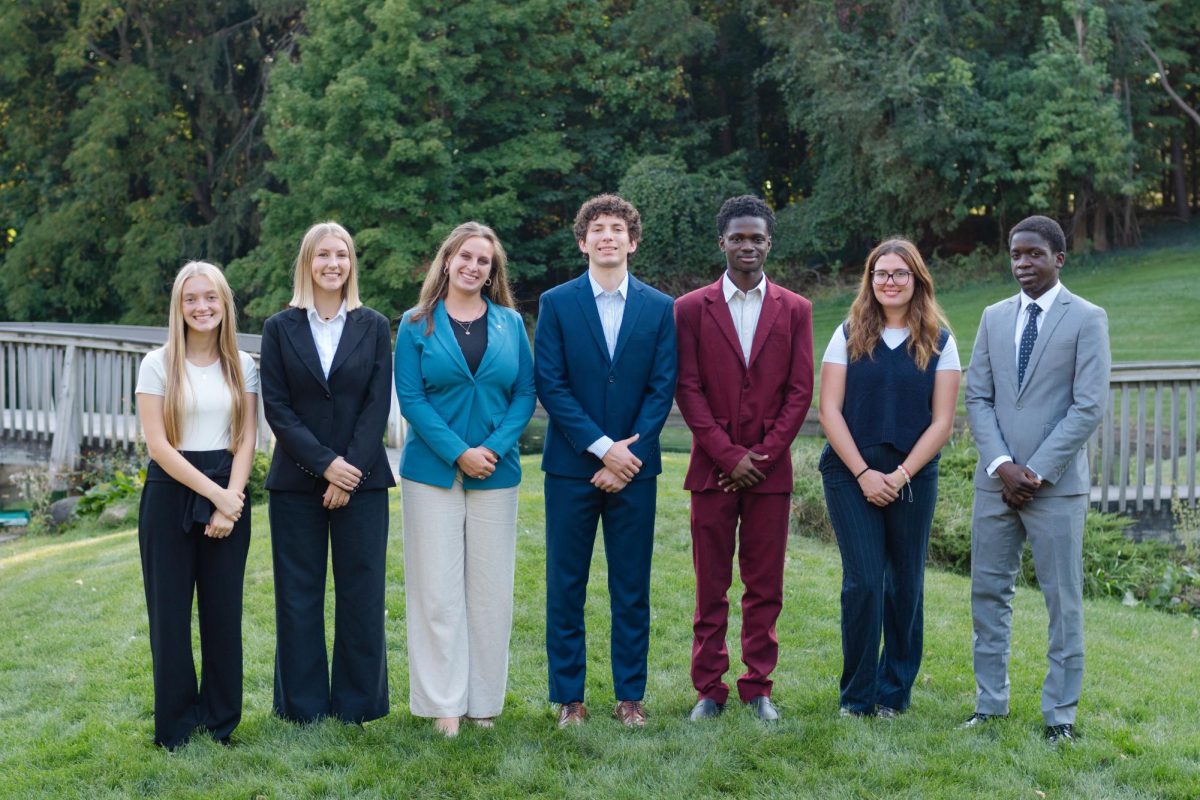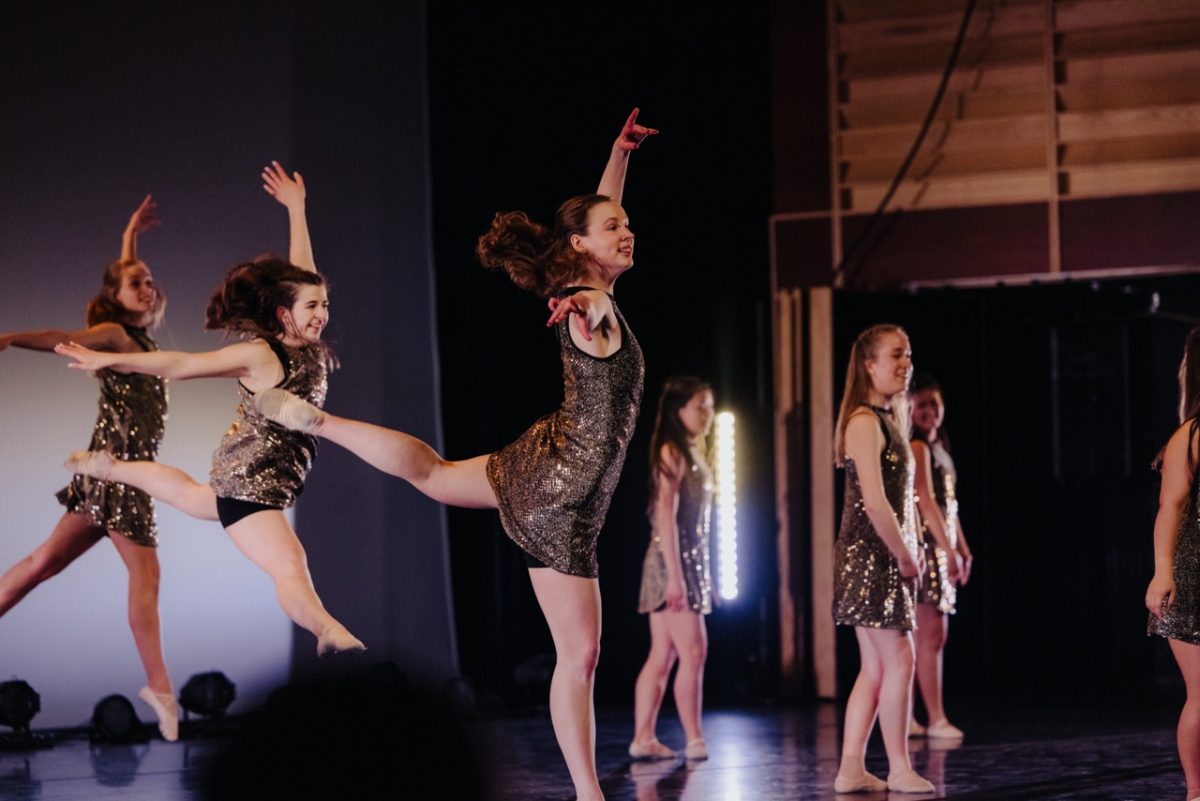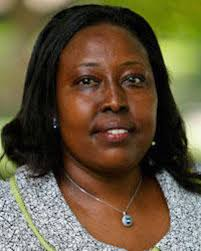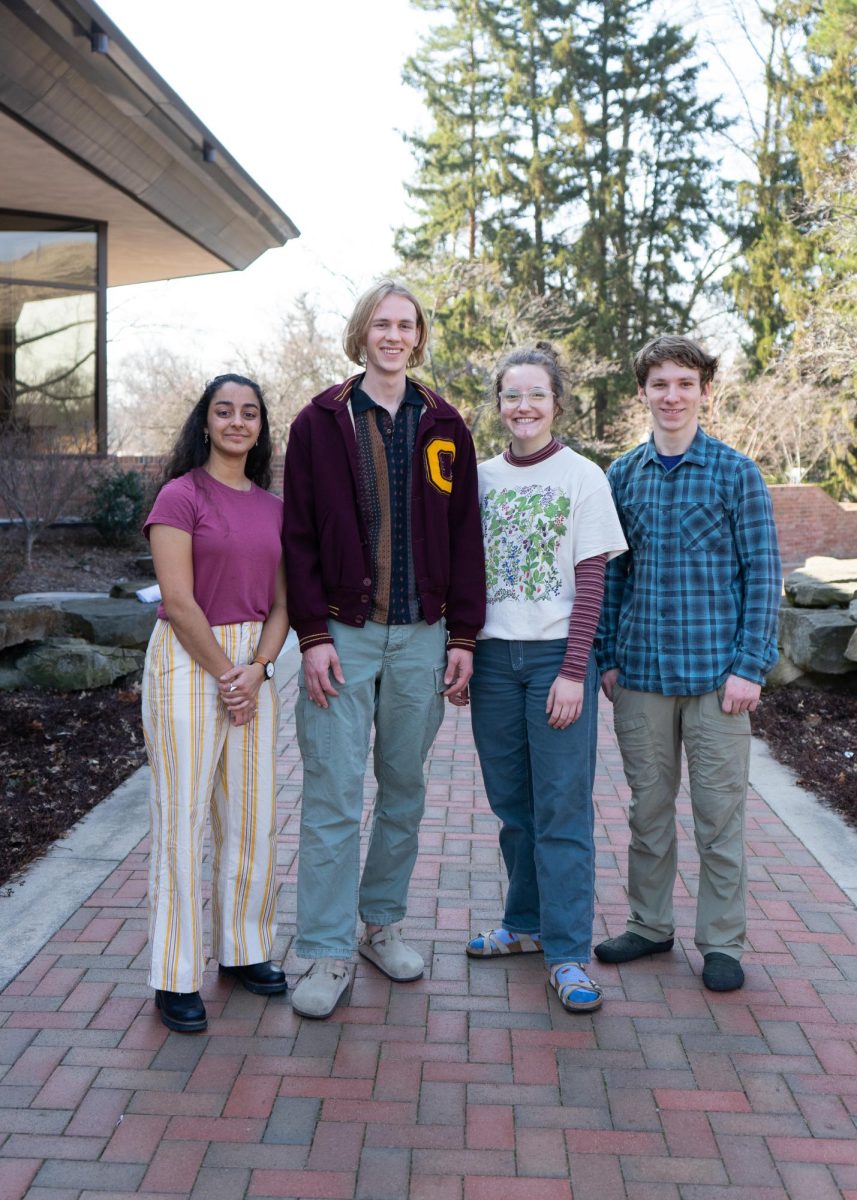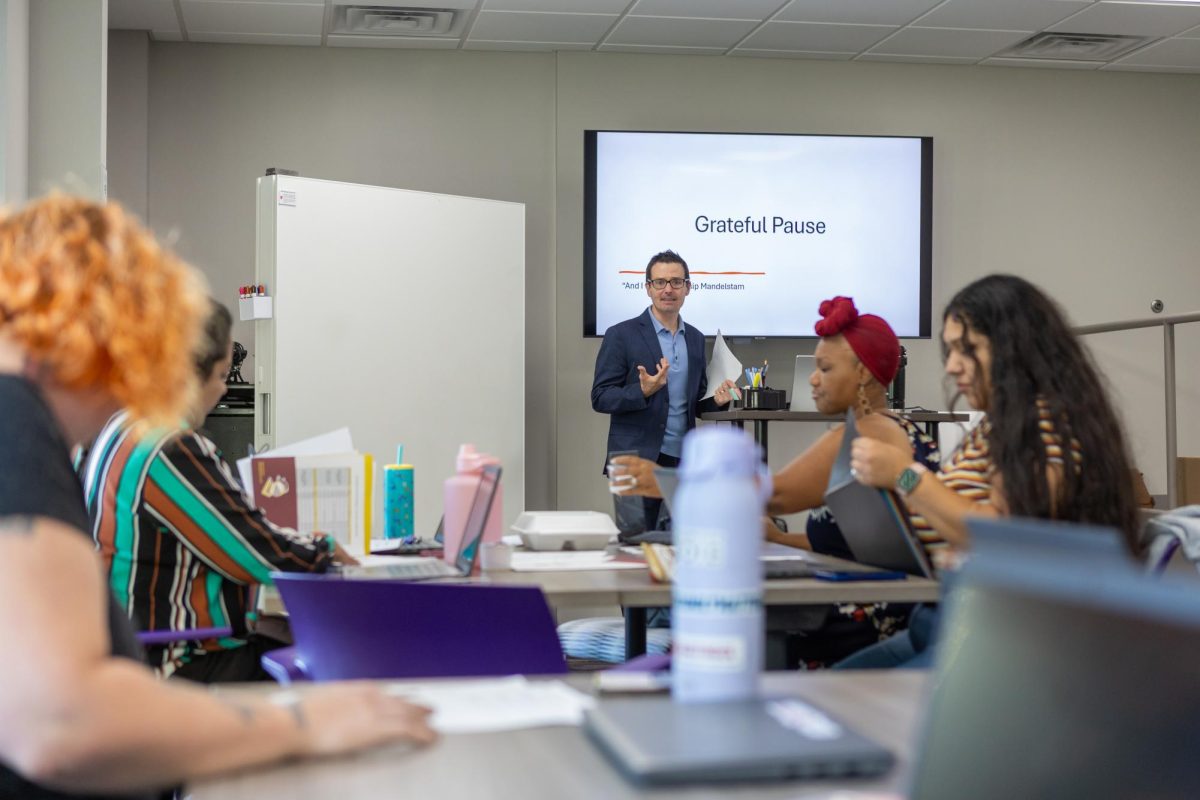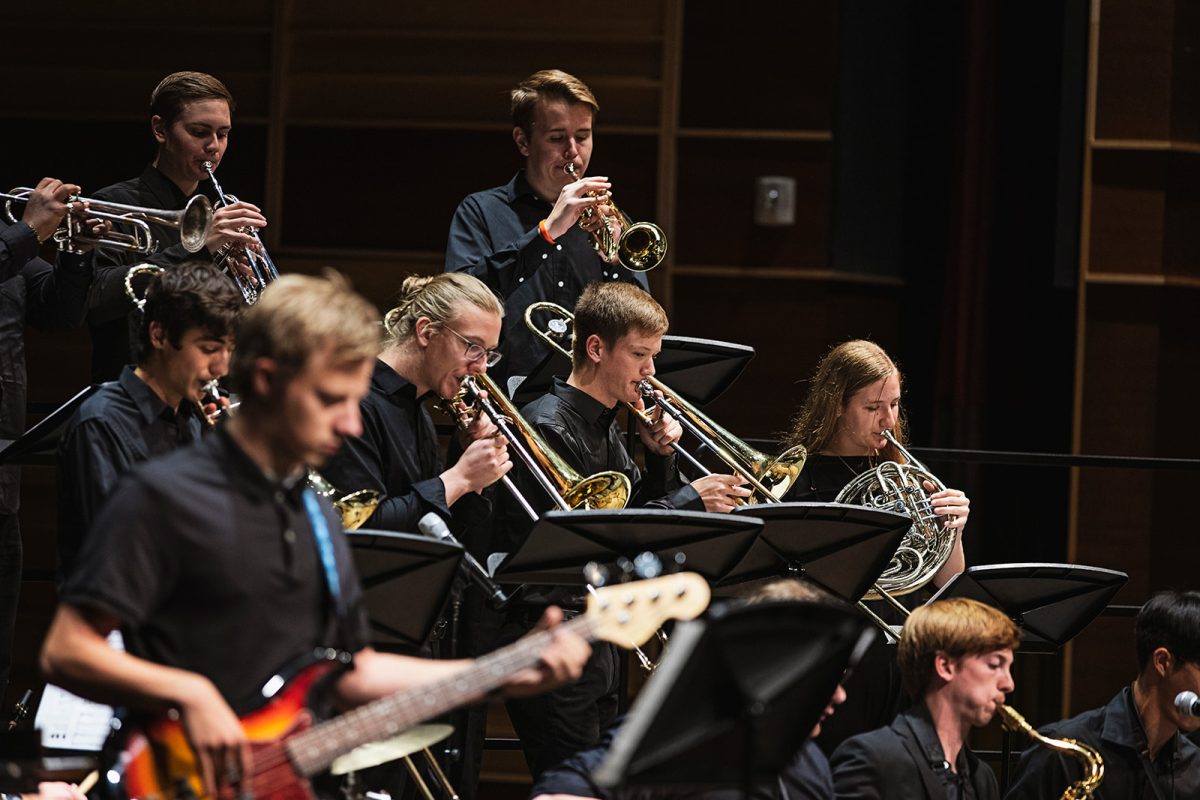At this year’s January Series, Lydia Dugdale, a medical ethicist, gave a talk called “The Lost Art of Dying: Ethical Considerations in Facing Our Mortality.”
50 years ago, the very first speaker in the brand new all-campus interim program, Lawrence Den Besten, gave a talk called “Death and Dying.”
Inside the 50-year-old brochure containing biographies of all the speakers, including Den Besten, is a short introduction written by the interim program committee, which says, “It has been our goal to provide a wide spectrum of programs and lecturers. By making these presentations open to the public at no cost, we hope not only to provide the college community with other educational opportunities but to make these same opportunities available to the general community. It is hoped that this program can grow and become an annual presentation here at Calvin.”
That all-campus interim program, begun in 1974, has grown into an annual presentation, today called the January Series.
Calvin’s January Series is an annual three week-long program that is free and accessible to the public during which a wide variety of speakers who are experts in a wide range of fields are invited to give educational talks.
According to Director Michael Wildschut, the program’s scale (15 straight days of speakers), the program’s reach (last year over 80,000 people attended online or in person), and the program’s longevity (around 38 years) are all rather unique. “A lot of speakers are surprised. They haven’t been to something like this before, at this scale, and in this format…So when they come in, and then they leave, and they realize that we’re doing this again for another seven days or another 10 days, they’re just blown away that we do it at this scale,” Wildschut said.
History
Before the January Series was the well-known and well-respected program it is today, it was an experiment.
Back in 1973, the faculty interim committee, headed by Charles J. Miller — a Calvin history professor, assistant dean for academic affairs at the time and eventually assistant to the provost — implemented a number of changes to Calvin’s interim program. All interim classes became morning or afternoon classes, with a break between 12:30 to 2 p.m. During this break, an all-campus program would be offered daily to provide more variety and an entertaining yet still educational break from intensive study, according to Chimes reporting from April and October of 1973.
The proposed changes — class schedule and an all-campus program — were possible because of the finally completed construction of “The new Classroom Administration Faculty Building,” within which was the brand new Gezon Auditorium, according to a Chimes article from April 1973.
According to the proposal, the new auditorium would be inaugurated on January 10, and the first speech (“Death and Dying” by Lawrence Den Besten) of this all-campus interim program would be hosted inside on January 11, according to a Chimes article from October 1973.
The program was well received. According to a document written by Miller to Calvin University President William Spoelhof, Miller said, “Nothing the Interim Committee has done recently has sparked more positive comments than this program. The student questionnaire was overwhelmingly favorable even from students who did not or could not attend.”
Additionally, in February of 1974, the student senate president Timothy Ordebeke sent a proposal to the interim committee of the faculty to create a joint interim activities committee that would curate a program to “enlighten and stimulate discussion among, and quality entertainment of, members of the Calvin community.” Student senate also proposed sharing some of the program’s cost.
Issues of workload, cost and planning continuity were considered in a number of documents written in 1974 among administrators, but approval was granted for a continuation of the program in 1975, ‘76 and further.
The structure of the program changed, and the “all-campus interim program” became the January Series as we know it today in 1987, when “founding director” June Hamersma –– who directed the series through its first 20 years –– was hired, according to Calvin’s website. She took over recruiting donors and hiring speakers.
In Hamersma’s time, the number of audience members grew from the 1988 January Series –– which averaged almost 400 attendees per day –– to the early 2000s, when daily attendance in the Fine Arts Center averaged around 1,400, according to her bio on Calvin’s website.
Kristi Potter stepped into the role of director after Hamersma’s retirement in 2007 and oversaw the implementation of remote webcast locations across the United States, Canada and Europe in the early 2010s. She steered the series through the 2020 pandemic in order to help the 2021 January Series reach almost 100,000 people worldwide, according to previous Chimes reporting.
Today, Wildschut, who assumed the role of director two years ago, continues the January Series legacy.
The January Series today
The January Series was originally designed to fit into Calvin’s interim program structure, but the university removed the interim period three years ago. The 2021-2022 school year was the first without an interim, and therefore, the 12:30 time slot is no longer universally free for students.
The series has continued offering the program at 12:30 for a number of reasons, including speaker coordination and scheduling student-speaker interaction. Additionally, the availability of on-demand individual streaming capabilities have changed how accessible the talks are. “While we have continued at 12:30, we do now make all of the talks available at least until midnight. And so for a lot of people now, they have more and greater access to the program than ever before, because they can watch it at a time that’s convenient,” Wildschut said.
The recent spring semester calendar change impacts the in-person experience because, compared to past years, fewer people are inside the auditorium, according to Wildschut. Virtuality is just the “next iteration” of the series though, according to Wildschut. “That we can make this available, and we can then broadcast it, and that people all over the world can participate — that’s a remarkable thing. And that does not come without skills and resources and a commitment to sharing this broadly,” he said.
As the January series has lived up to the original dreams of becoming an annual presentation for not only the Calvin community but also the public, so too has it retained a diverse cast of speakers.
Graham Kort, a senior music major who has taken a one credit January series class for the last three years, told Chimes the unexpected variety of speakers is what he most values about the program. According to Kort, the January Series “brings together 15 people who you would never see associated in any other way.” Kort’s two favorite speakers over the past years include a Black Panther costume designer and an admiral talking about the current state of geopolitics.
That is Wildschut’s goal. If a listener doesn’t like one day of the series, he hopes they will like the next. “One day, you can be talking about Bach and natural machines, and the next day, you can be talking about religious freedom, and the next day, you can be talking about soul food,” he said. “So the breadth of topics that we cover allows us to reach lots of people.”
In reaching a wide and diverse audience, Wildschut hopes to represent Calvin well. “I want faculty and staff and students to feel proud that this is connected to their institution,” Wildschut told Chimes, “Because it’s an exciting thing…and we don’t always realize how exceptional it is.”



